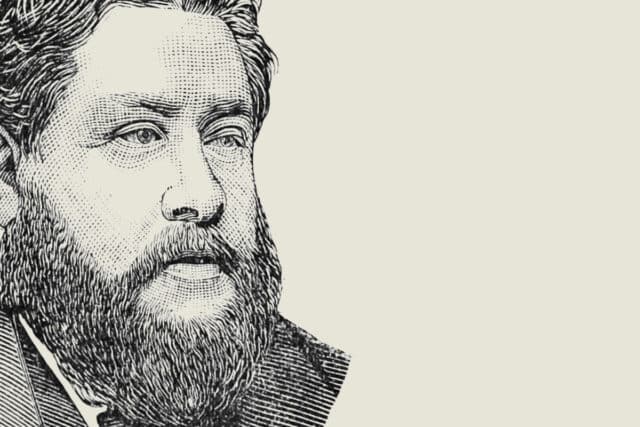Article
Spurgeon’s 13 Points for Keeping People’s Attention
In a lecture called “Attention!” Spurgeon taught his students how to obtain and retain the attention of their hearers.

Great preachers are more than attention-getters. They are attention-keepers. They are attention-herders. They are attention-protectors. Every preacher is in a battle against the world, the flesh, and the devil for the attention of their hearers. Even Spurgeon, the Prince of Preachers, fought on the frontlines for his people’s attention while preaching.
In a lecture called “Attention!” Spurgeon taught his students how to obtain and retain the attention of their hearers. He said, “Their attention must be gained, or nothing can be done with them: and it must be retained, or we may go on word-spinning, but no good will come of it.” While we may be tempted to put the problem of distraction or inattention totally on the spiritual maturity of our hearers, Spurgeon wants us to feel our responsibility, too. “You must attract the fish to your hook, and if they do not come you should blame the fisherman and not the fish.”
Before we begin thinking about ways to get and keep attention, let’s have some sympathy for our hearers. Preacher, you have been reading, thinking, meditating, praying, studying, and writing about this passage all week. You hearers are just now getting it. Our hearers are often pestered by, as Spurgeon calls them, “mental mosquitoes.” Their job, kids, stresses, hurts, worries, responsibilities, what’s happened in the week, what’s left to do in the week, and what could happen later in the day all pester our hearers as they try to listen to us preach. Let’s do all we can to swat and shoo away the mental mosquitoes. Here’s a 13-point summary of Spurgeon’s counsel on getting and keeping people’s attention.
1. Teach Solid Truth
Spurgeon starts us off with the content of our sermons. “In order to get attention, the first golden rule is, always say something worth hearing.” Being a good communicator with pointless content is just a bad magic trick. It’s an illusion. An act that will not keep people’s attention for long. Content is king. Gospel content, biblical content, solid gold bars of delicious truth, is what will make people lean forward for more. As Spurgeon said, “Give your hearers something which they can treasure up and remember; something likely to be useful to them, the best matter from the best of places, solid doctrine from the divine Word.”
2. Organize the Sermon
Outlining sermons is not against the power, flow, and work of the Spirit. God clearly loves an organized delivery of truth—the 10 Commandments, 613 laws, tabernacle schematics, and 66 books of truths. Disconnected ramblings on a text don’t equal a sermon. Spurgeon told his students about a time he went to the store to buy some mustard and tea. On the way home, his items got mixed up and were spoiled because they were not sorted and packed. The same happens in sermons. “People will not drink your mustardy tea, nor will they enjoy muddled up sermons … Put the truth before men in a logical, orderly manner, so that they can easily remember it, and they will the more readily receive it.”
3. Don’t Be Fancy
One way to guarantee the loss of your hearers’ attention is to speak above and around them. “Speak plainly; because, however excellent your matter, if a man does not comprehend it, it can be of no use to him.” If you have to use a big doctrinal word, define it, but use it sparingly. And in reality, this isn’t a lecture, it’s a sermon—speak at street level. Use the plain, accessible, and beautiful words of the Bible more than the fancy schmancy words of the academy or culture. You don’t want to lose people because you made them travel to a land where they don’t understand the language.
4. Vary Your Voice
Like in a similar article on the preaching voice, Spurgeon reminds us of the importance of our instrument in preaching. “In order to get attention, make your manner as pleasing as it can possibly be. Do not, for instance, indulge in monotones.” We can be honest with each other here: Ho-hum delivery often makes people long for their homes. Brothers, we have the most beautiful truths in the universe, so let’s beautifully deliver them! Spurgeon says:
“Vary your voice continually. Vary your speed as well—dash as rapidly as a lightning flash. Shift your accent, move your emphasis, and avoid sing-song. Vary the tone; use the bass sometimes, and let the thunders roll within; at other times speak as you ought to do generally—from the lips, and let your speech be conversational.”
5. Keep Your Intro Short
Spurgeon nailed it when he said, “As a rule, do not make the introduction too long. It is always a pity to build a great porch to a little house.” I’ve heard sermons where the intro was a third of the entire sermon—an imbalance that kept the sermon from getting off the ground. If you’ve ever spent too long on a plane, just sitting on the runway, you know what it’s like to hear too long an introduction. It’s a bore fest. Not what you signed up for. In preaching, get to the point.
6. Skip Some Stuff
You can’t preach everything in a passage. Not in one sermon. Or, at least you shouldn’t. But you must preach the main thing. The Bible is a vast waterway system of interconnected truths. And if you aren’t mindful, you can end up kayaking across the ocean when you only needed to jaunt down a river. You don’t have to give comprehensive lessons on systematic theology in a single sermon. Spurgeon put it this way, “Do not think it necessary or important every time you preach to give a complete summary of theology … Our hearers do not want the bare bones of technical definition, but meat and flavor.” Feed people, but don’t lull them into a Thanksgiving-style nap with an overstuffed sermon.
7. Don’t Preach Too Long
This is an obvious one that should not be ignored. “In order to maintain attention, avoid being too long.” What’s too long for a sermon? Spurgeon thought 40 minutes was enough. “A man with a great deal of well-prepared matter will probably not exceed forty minutes; when he has less to say he will go on for fifty minutes, and when he has absolutely nothing he will need an hour to say it in.”
Organizing, outlining, and even manuscripting your sermons will help you identify where you can cut the fluff. Excess tends to happen in two areas, first, in the illustrations—too long, too many—and then in the exegesis—too detailed, too much. Spurgeon’s advice to shorten your sermon? “Spend more time in the study that you may need less in the pulpit.” Nail what you want to say before you say it.
8. Be Affected by the Text
One of the best ways to get and keep the attention of your hearers is for the text to have your attention—for God to have your attention. If you are affected by the passage and the glory of Christ, your hearers will find it harder to ignore a living testimony of the effects of this text. As Spurgeon said, “Be interested yourself, and you will interest others … Your subject must weigh so much upon your own mind that you dedicate all your faculties at their best to the deliverance of your soul concerning it; and then when your hearers see that the topic has engrossed you, it will by degrees engross them.”
9. Use Fresh Illustrations
Illustrations, stories, and word pictures are a powerful vehicle for tacking truth in our hearts. But be sure to use genuine illustrations. Don’t steal from the lives of others. You have a life—pull from it. “Keep your eyes open, and gather flowers from the garden and the field with your own hands; they will be far more acceptable than withered specimens borrowed from other men’s bouquets, however beautiful those may once have been.”
However, remember not to over-illustrate. We aren’t storytellers. We are proclaimers. Spurgeon: “Garnish your dishes, but remember that the joint is the main point to consider, not the garnishing. Real instruction must be given and solid doctrine taught, or you will find your imagery pall upon your hearers, and they will pine for spiritual meat.”
10. Spin a Sentence
One way to keep people’s attention from drifting is to surprise them with a sentence that spins or zips in a different direction. Spurgeon was a master at this technique. He said, “Do not say what everybody expected you would say. Keep your sentences out of ruts.” Find a fresh phrase, a synonym, a blend of biblical images to keep people attuned.
One example I’ve found helpful is varying how I refer to Jesus throughout the sermon. People notice how I call him Christ, King Jesus, Risen Lord, the Son of God, our Galilean and Galactic Emperor, and so forth.
11. The Power of a Pause
You don’t have to fill the silence with the sound of your voice. Too much talking will eventually sound like static. Spurgeon exhorts us to, “Know how to pause. Make a point of interjecting arousing parentheses of quietude. Speech is silver, but silence is golden when hearers are inattentive. Keep on, on, on, on, on, with commonplace matter and monotonous tone, and you are rocking the cradle, and deeper slumbers will result; give the cradle a jerk, and sleep will flee.” A timely pause allows for a thought to land, get attention, and then get to work on the brain.
12. Make it Real
It ought to be a felony when a preacher makes God’s truth seem irrelevant. Put in the work to, as Spurgeon says, “Make the people feel that they have an interest in what we are saying to them.” We ought to point out how this text matters for their lives, their joy, their eternity, or their assurance. Spurgeon illustrates this well, “I never did hear of a person going to sleep while a will was being read in which he expected a legacy; neither have I heard of a prisoner going to sleep while the judge was summing up, and his life was hanging in jeopardy. Self-interest quickens attention. Preach upon practical themes, pressing, present, personal matters, and you will secure an earnest hearing.” Show your hearers why this sermon matters. What would be lost or missed if they zoned out?
13. Depend on the Spirit
Spurgeon ends his lecture with a reminder of how sermons “work,” and what will ultimately keep people’s attention. The Spirit of God is hope. “Supernatural power must be your reliance. We say to you, perfect yourselves in oratory, cultivate all the fields of knowledge, make your sermon mentally and rhetorically all it ought to be (you ought to do no less in such a service), but at the same time remember, ‘it is not by might, nor by power,’ that men are regenerated or sanctified, but ‘by my Spirit, saith the Lord.’
Let’s work on the craft of preaching and the art of depending on the Spirit of God.




